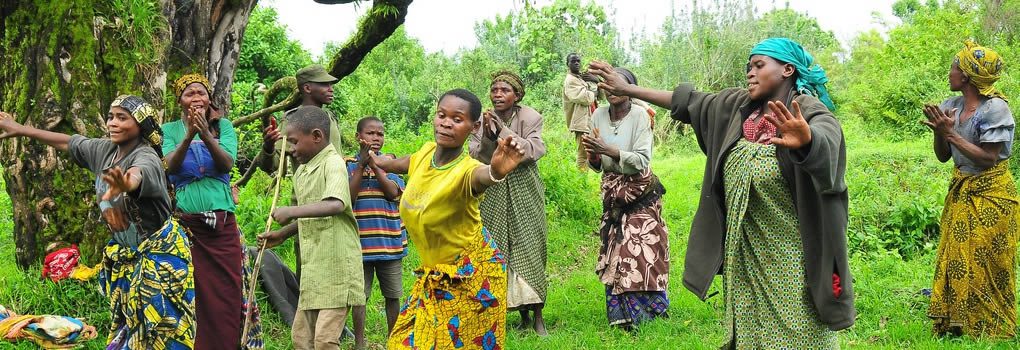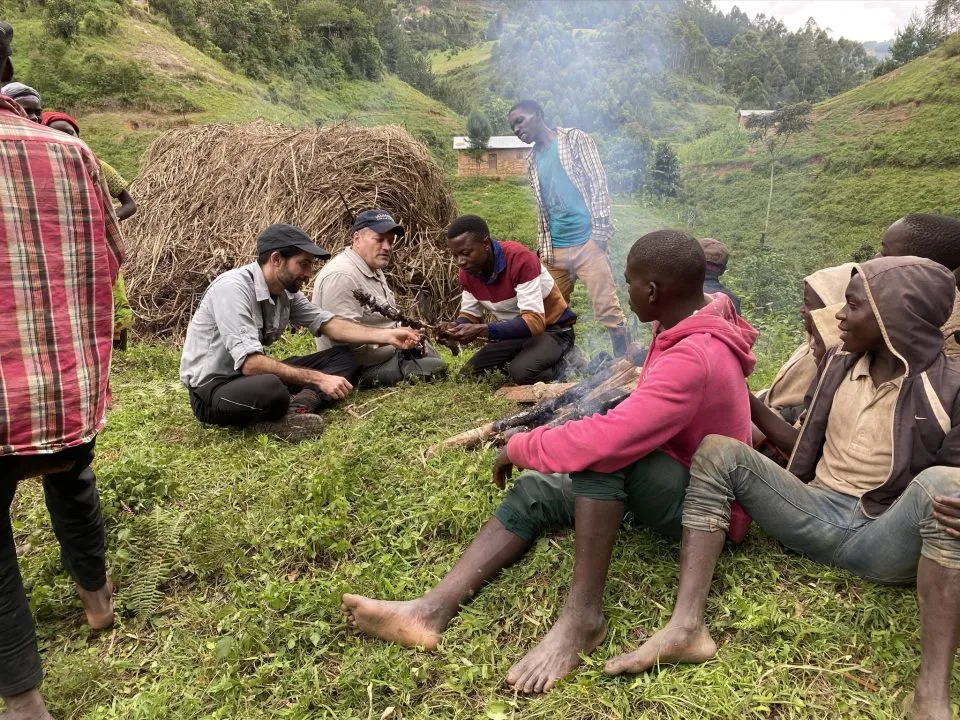Cultural Encounters with Local Communities near Kibale
Immersing in Heritage Beyond the Forest
While Kibale National Park is globally celebrated for its dense rainforest, chimpanzees, and extraordinary biodiversity, the human dimension of this region adds a profound layer of richness to any visit. The forest is surrounded by vibrant local communities, including the Bakiga, Batooro, and Batwa peoples, whose traditions, knowledge systems, and lifestyles have been intricately shaped by centuries of interaction with the forest. Cultural encounters with these communities transform a standard safari into an immersive journey, where heritage, ecological knowledge, and human resilience converge to enrich the visitor experience.
These encounters are more than passive observations; they provide opportunities to understand how local communities engage with the environment, conserve biodiversity, and sustain livelihoods through traditional practices. Visitors gain insight into cultural ceremonies, agricultural methods, folklore, music, dance, and crafts, all of which are integral to the identity of communities bordering Kibale. Understanding these cultural dimensions allows travelers to appreciate the forest not only as a repository of wildlife but as a living landscape intertwined with human history and resilience.
This guide explores cultural encounters near Kibale, examining community structures, traditions, sustainable practices, immersive experiences, and ethical considerations, providing a holistic understanding of the social landscape surrounding one of Uganda’s premier safari destinations.
The Communities Surrounding Kibale
The Bakiga
The Bakiga are the largest ethnic group in the region surrounding Kibale. Known for their agricultural expertise and terraced farming practices, they have cultivated the highlands for generations, growing crops such as bananas, beans, maize, and sweet potatoes. The Bakiga social structure is organized around extended families, with cultural norms emphasizing communal labor, mutual support, and respect for elders.
Interaction with Bakiga communities allows visitors to observe daily routines, including planting, harvesting, and food preparation. Their knowledge of forest ecology is embedded in agricultural practices, demonstrating how humans adapt to and sustainably utilize the natural environment. Cultural rituals, storytelling, and folk songs are employed to transmit knowledge across generations, providing visitors with intimate insight into the continuity of local traditions.
The Batwa
The Batwa, often referred to as “forest people”, represent an indigenous population historically dependent on Kibale and neighboring forests for survival. Traditionally hunter-gatherers, the Batwa possess extraordinary knowledge of forest flora and fauna, medicinal plants, and wildlife tracking. Their cultural practices, which include dance, music, and oral storytelling, are deeply tied to ecological understanding and spiritual connections with the forest.
Engagement with Batwa communities allows visitors to appreciate a cultural narrative that intertwines survival, tradition, and adaptation. Demonstrations of traditional hunting techniques, herbal medicine preparation, and musical performances offer both educational and immersive experiences. Over time, many Batwa have adapted to settled lifestyles, and cultural encounters often include craft-making and cultural preservation initiatives, which provide income while sustaining heritage.
The Batooro
The Batooro communities occupy areas slightly further from the forest edges, bringing unique monarchical traditions, artisanal crafts, and ritual practices. Their culture is expressed through ceremonies, regalia, and agricultural methods, complementing the broader mosaic of local heritage. Visitors gain insight into governance structures, traditional justice systems, and festive expressions, which illustrate the intricate social networks that sustain communities around Kibale.
Cultural Activities and Immersive Experiences
Traditional Dance and Music
Music and dance are integral aspects of cultural life among the Bakiga, Batwa, and Batooro. Performances often mark rituals, seasonal celebrations, and community gatherings, and visitors are invited to observe or participate. Rhythmic drum patterns, vocal harmonies, and choreographed movements convey stories of ancestry, forest ecology, and historical events. These performances provide an interactive medium for understanding community values, spiritual beliefs, and environmental knowledge.
Traditional dance also serves as a tool for ecological education, with some movements symbolically representing animal behavior, hunting practices, or agricultural cycles. Visitors often experience a dual appreciation of cultural artistry and environmental literacy, witnessing how artistic expression and ecological awareness are intertwined.
Craftsmanship and Artisan Work
Local communities maintain craft traditions that reflect both functional and aesthetic knowledge. Batwa artisans often produce musical instruments, wooden carvings, beadwork, and other items derived from forest resources. Bakiga and Batooro crafts may include basketry, pottery, and woven textiles, frequently utilizing locally sourced fibers and materials.
Visitors are provided opportunities to observe, learn, and participate in crafting sessions, gaining insight into traditional techniques, symbolic motifs, and the sustainable use of natural resources. Craft activities are also linked to community economic empowerment, as proceeds from sales support livelihoods, education, and conservation programs.
Agricultural Practices and Forest Management
Field visits to Bakiga and Batooro farms reveal sophisticated agricultural systems, including terraced hillsides, intercropping, and soil conservation methods. These practices demonstrate a harmonious relationship between human settlement and forest preservation, as farmers maintain fallow periods, protect riparian zones, and manage biodiversity within agricultural plots.
Community-guided farm walks allow visitors to understand how traditional ecological knowledge informs modern farming, including identification of medicinal plants, natural fertilizers, and crop rotation techniques. These experiences bridge cultural and ecological education, highlighting the role of human ingenuity in sustaining productive landscapes adjacent to Kibale.
Storytelling and Oral Histories
Oral storytelling remains a primary medium for transmitting cultural knowledge. Elders recount ancestral histories, ecological wisdom, moral lessons, and folklore, often in connection with forest species and natural phenomena. These narratives provide visitors with a multilayered understanding of local belief systems, wildlife significance, and human-environment interactions.
Storytelling sessions are often conducted in communal settings, encouraging engagement, dialogue, and reflection. Visitors gain a sense of temporal continuity, recognizing how knowledge accumulated over generations continues to guide contemporary environmental and social practices.
Eco-Cultural Tourism and Conservation
Integration of Cultural and Ecological Education
Cultural encounters near Kibale are frequently integrated with eco-tourism objectives, emphasizing both human heritage and biodiversity conservation. Visitors learn how communities engage in forest stewardship, anti-poaching initiatives, and habitat protection, linking cultural practices with ecological outcomes. This dual focus enhances appreciation for conservation strategies that are socially grounded and locally supported.
Guides often explain the historical context of forest use, highlighting how communities have adapted to changes in wildlife populations, agricultural expansion, and conservation policies. Visitors observe how traditional norms complement modern conservation efforts, creating sustainable systems that support both human livelihoods and ecological integrity.
Community-Based Tourism Initiatives
Several villages near Kibale have developed structured community-based tourism programs, where cultural performances, craft workshops, and guided village tours are offered in collaboration with conservation organizations. These initiatives are designed to generate income for communities while reinforcing cultural preservation and ecological awareness.
Participation in these programs allows visitors to witness tangible outcomes of sustainable tourism, including improvements in local infrastructure, education, and resource management. Ethical engagement ensures that visits are respectful, mutually beneficial, and supportive of long-term conservation objectives.
Seasonal and Logistical Considerations
Seasonal Variations
Cultural activities and accessibility are influenced by seasonal cycles, including rainfall, agricultural patterns, and community events. During wet seasons, farm visits may be limited due to muddy terrain, though indoor cultural performances, storytelling, and craft sessions remain feasible. Dry seasons facilitate greater mobility, enabling extensive participation in agricultural demonstrations, forest excursions, and outdoor ceremonies.
Community festivals, ritual ceremonies, and harvest celebrations often occur seasonally, offering unique opportunities for immersive experiences. Timing visits to coincide with these events enhances both educational and cultural engagement.
Accessibility and Accommodation
Communities near Kibale are accessible from Fort Portal and nearby lodges, with local guides coordinating visits, transport, and logistical arrangements. Accommodations range from eco-lodges to premium safari lodges, many of which integrate cultural experience packages. Luxury lodges often serve as bases for multi-day immersion, providing comfort while facilitating engagement with village activities, forest walks, and primate observation.
Ethical and Responsible Engagement
Cultural encounters are conducted under principles of respect, consent, and reciprocity. Visitors are guided on appropriate behavior, photography etiquette, and participation protocols to ensure that community dignity is upheld. Compensation for performances, craft sales, and guided experiences supports local livelihoods and cultural sustainability.
Integration of visitor education emphasizes mutual learning, highlighting how local knowledge informs conservation, how traditions sustain social cohesion, and how external engagement can reinforce rather than disrupt cultural systems. Ethical practices enhance the authenticity of experiences while fostering long-term collaboration between communities and tourism operators.
Complementary Experiences
Chimpanzee Tracking and Wildlife Observation
Cultural experiences are often complemented by wildlife-focused excursions, including chimpanzee trekking, primate observation, and birdwatching. Integration of ecological and cultural experiences provides visitors with a holistic perspective on the interconnectedness of human and forest life.
Forest Walks and Plant Identification
Guided forest walks emphasize both biodiversity and traditional ecological knowledge. Visitors learn to identify edible and medicinal plants, understand seasonal cycles, and observe animal behaviors, all while contextualizing these elements within community practices and cultural narratives.
Culinary Experiences
Traditional culinary demonstrations introduce visitors to local dietary practices, preparation methods, and communal eating rituals. These sessions reinforce cultural understanding, provide sensory immersion, and illustrate the connections between diet, agriculture, and forest resources.
Bridging Culture and Conservation
Cultural encounters with local communities near Kibale National Park offer profound insights into the interdependence of human and ecological systems. From Batwa storytelling to Bakiga farming practices, from music and dance to artisanal craftsmanship, visitors experience a dimension of the forest that extends beyond wildlife observation. These engagements illuminate how cultural heritage, traditional knowledge, and conservation efforts converge to sustain both human and ecological communities.
For travelers seeking a seamless, ethically grounded, and enriching safari experience, it is recommended that tours and cultural excursions be arranged through WildHorn Africa. Their expertise ensures respectful engagement with local communities, access to immersive cultural experiences, high-quality guides, and logistical support, transforming a visit to Kibale into a comprehensive journey of ecological discovery and cultural appreciation.






